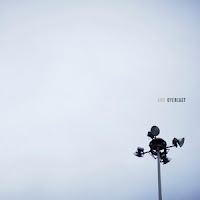 Stretta
Stretta, the musician who makes great piano music, recently wrote
a post about the new Amazon Kindle (2). He makes a few good observations, but I think misses a few more.
There have been a number of serious attempts over the last 10 years to make electronic books - Rocketbook, Sony's eBook...the Kindle is just the most recent.
I don't think electronic books are going to change the world. Let's set aside the technology improvements required, chief among them being affordable, high resolution color screens. Let's think about the total experience of a regular, old fashion, analog book.
Books are one of the most refined and mature technologies humans have. Books are easy to duplicate, either at the time of printing or after the fact. In quantity, they're dirt cheap.
They are a very robust technology. Books can be readable for hundreds, if not thousands of years, can survive immersion in water, burial, and extremes of cold and heat. They don't require a power source. They have no boot-up time. They are useful and readable even with some data loss or physical damage.
Some have primitive search technologies built in (tables of contents, indices). They can support text and high resolution graphics. They're portable.
Books can come in a variety of sizes. Different paper stocks allow conveyance of different meanings and experiences. Books serve as visual indications of status, intellect, and tastes.
At the gym a few months back I saw one of the freak parade talk show hosts giving their guests some great
American cargo cult advice - "Rich people have a lot of books in their house, so go buy some books" (because presumably then you'll be rich).
A stack, pile, or wall of books at someone's home or office tells you about that person. If you walk into the same situation and only see a Kindle or a laptop, it tells you something else. These cultural elements are strong and slow to change, especially given books' longevity as a technology.
Even though the above things have nothing to do with "reading" (as in "getting the information from the text") I believe in the case of books they are as important, and in some cases
more important, than getting the information from the text.
The creators of electronic books are either unaware of these elements of books (unlikely) or they're choosing to ignore or minimize them, believing them irrelevant to the greater feature set offered. Despite the fact that I arguably work on
the same thing, but for music, I think they've misjudged things, and that's one reason electronic books will not be a mass market technology.
I believe these devices do have potential markets once they're a little more refined. Yes, there's the "road warrior". I know one of these guys, and he loves his Kindle. He's also on a long plane flight at least every other week. Are you? Small market.
One obvious market is
replacement of college textbooks. The hard-nosed businessfolk who are "forced" to charge outrageous prices for college texts will gladly stop trying to guess how many heavy, boring, and soon out-of-date books they have to manufacture. They will dance in the streets out of fiscal joy when they realize they can DRM or license the books to individual readers and kill off the used book market. They may even choose to lower prices.
Students will benefit from being able to carry all their texts with them anywhere, write in the margins, search, and do all the other wonderful ebook things they've been promised.
The other area that makes sense for me is
replacement of periodicals. The manufacturing and distribution of this ephemeral content will make less environmental and financial sense as time goes by.
Electronic versions of magazines could be "printed" without the multi-month lead time required by today's magazines, updated frequently, and would provide an instant, easy way for subscribers to store every issue they ever receive. Your neighbors can't steal electronic newspapers and magazines, and the post office (assuming they're still around) can't shred the crap out of them either.
But I'd also note that any of the improvements required for electronic books to succeed will almost certainly be ported to other technologies - the laptops and handhelds and monitors we all use. The high resolution color screens will appear in all of these areas. They'll also end up as your desk surface, your wrist watch, and billboards.
The fact that a laptop will be "good enough" for most users (and thus represent a huge market) will continue to undermine the electronic book market. A likely outcome is that dedicated electronic book readers may have marginally "better" qualitative experiences, and potentially get some content in advance of the PC world. Ultimately, though, I think they'll remain a niche product.
I use "electronic book" to refer interchangeably to both the content and the device, because they're largely the same. Vendors won't create content with color imagery and covers if the devices won't support it. The devices won't add the cost to support it unless the vendors are going to invest in it. (Hint to both parties: Comic book geeks will love you if you get this right!)
I won't go into the problems and absurdities of the current closed and DRM-protected formats - it's like the record business. All you need to know is "these formats don't matter", and I would advise only making purchases you don't care that much about. You'll get a better lifetime out of a used paperback than a DRM-protected electronic book.
Update:
Another reason electronic books won't catch on is the idiocy of the content industry, as
evidenced here. Much like the music business, or perhaps the government, they're so busy trying to "protect" their business they're actually destroying its future.
 My new album "Overcast" is finished and available for download. Enjoy.
My new album "Overcast" is finished and available for download. Enjoy.





